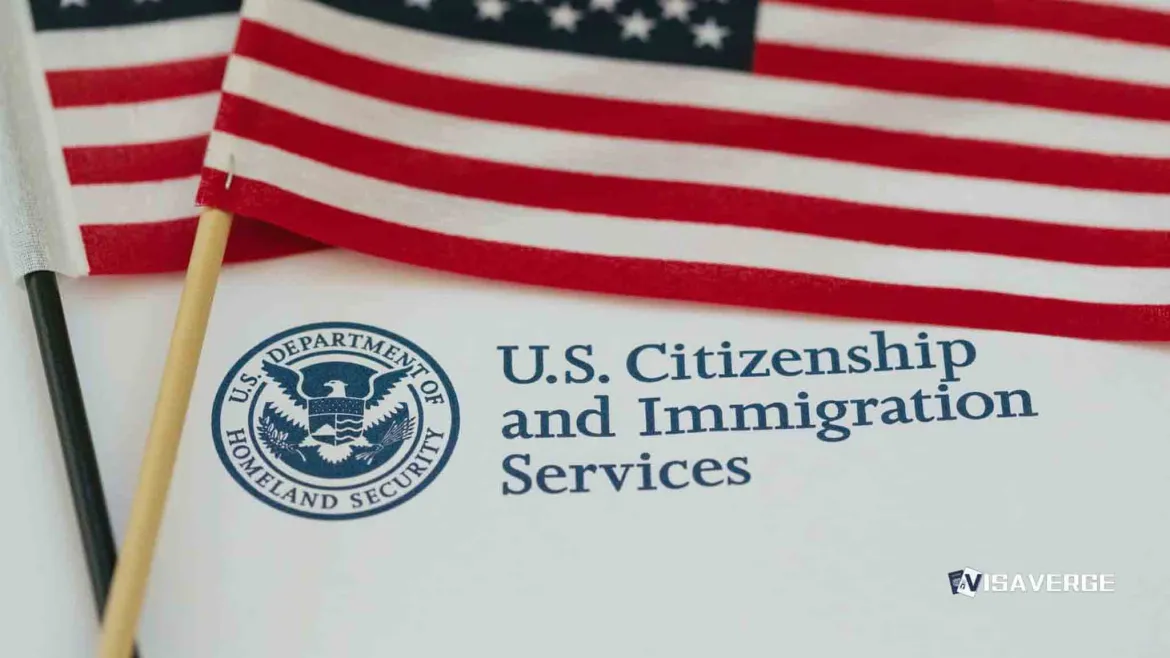Key Takeaways
01
The FLSA regulates minimum wage, overtime, and child labor, distinguishing between exempt and non-exempt employees.
02
Exempt employees don’t qualify for overtime; criteria include job duties and salary thresholds impacting nondiscretionary payments.
03
Compliance with FLSA rules avoids legal issues; staying updated on legislative changes ensures proper employee classification and compensation management.
Understanding Exemptions and Payments in U.S. Labor Law
The Fair Labor Standards Act (FLSA) safeguards worker rights with rules on minimum wage, overtime, and child labor. Exempt employees and nondiscretionary payments often create confusion, impacting compliance and employee classification.

Why it matters: Incorrect employee classification can lead to legal issues and financial penalties for businesses not adhering to FLSA standards. Understanding these distinctions is crucial for both employers and employees.
The big picture:
– Exempt vs. Non-exempt: Non-exempt employees receive overtime pay; exempt employees do not, based on job duties and salary thresholds.
– Historical Context: Enacted in 1938, the FLSA addresses fair working conditions, with updates aligning labor regulations with economic changes.
Key Terms:
– “Nondiscretionary payments” include bonuses and incentives predetermined by agreements, impacting exempt employee classification if they constitute significant compensation.
Impact: Misclassifying exempt employees due to nondiscretionary payments can result in legal actions and back pay for overtime.
Recent Changes:
– 2016 updates raised salary requirements for exemptions and allowed nondiscretionary payments to cover up to 10% of the standard salary.
What they’re saying: Ongoing debates in Congress focus on whether exempt criteria should further adapt to modern workforce trends, including gig economy influences.
Enforcement: The U.S. Department of Labor audits and investigates employer compliance, with non-compliance leading to fines and reputational damage.
The bottom line: Correct classification and payment structure prevent costly legal outcomes and ensure fair treatment of employees. Staying informed on FLSA updates is essential for compliance and protecting both worker rights and business interests.
Taking a Closer Look
The Fair Labor Standards Act (FLSA) sets vital rules to safeguard worker rights in the United States 🇺🇸. These rules cover things like minimum wage, overtime, and child labor standards. Among the FLSA’s rules, those about exempt employees and nondiscretionary payments often cause confusion. Understanding these terms can help both employees and businesses know what the law expects.
Overview of the FLSA and Exempt Employees
Under the FLSA, workers fall into two main categories: exempt and non-exempt employees. Non-exempt employees must receive at least the minimum wage for each hour they work and are entitled to overtime pay if they work more than 40 hours in a week. Overtime pay must be at least one and a half times the regular pay rate.
Exempt employees, however, are not entitled to overtime pay. To qualify as exempt, workers must generally have specific types of job duties and earn a salary above a certain amount. Most commonly, this includes executive, administrative, and professional roles, often referred to as white-collar jobs. While these workers are not owed overtime pay, there are situations where nondiscretionary payments like bonuses can impact their pay.
Historical Context and Reasons for FLSA Implementation
The FLSA was enacted in 1938 during the Great Depression. At that time, many workers faced excessively long hours and very low pay. The FLSA aimed to create fairer working conditions by limiting work hours and setting a minimum wage. Over the years, the act has been updated to reflect changes in the economy and the labor market. These updates have included raising the minimum wage and adjusting the criteria for exempt employees.
Key Terms: Nondiscretionary Payments
“Nondiscretionary payments” is a term used in FLSA rules to describe certain types of pay that employers are obligated to give to employees based on set standards or agreements. These payments can include bonuses, incentives for meeting certain goals, or commissions. They are called “nondiscretionary” because they are planned and anticipated as part of the job’s compensation. This is different from discretionary payments, which are given at the employer’s discretion and do not follow a set formula or standard.
Impact of Nondiscretionary Payments on Exempt Employees
While exempt employees are not entitled to overtime, nondiscretionary payments can affect their salary basis tests. Employers must be careful when structuring these payments to ensure they do not unintentionally classify their exempt employees as non-exempt, which could occur if nondiscretionary payments form too large a part of an employee’s total pay. This is crucial as it could lead to potential legal complications and the need for back pay for overtime hours if employees are misclassified.
Moreover, nondiscretionary payments can sometimes influence the regular rate of pay, even if the employees are exempt. Although often overlooked, it’s important for employers to understand how bonuses and other nondiscretionary pay fit within the FLSA framework to ensure compliance.
Legal Precedents and Case Law
Several legal precedents clarify how nondiscretionary payments are treated under the FLSA. One key case involves the U.S. Department of Labor (DOL) rules, which specify how certain types of payments should be factored into overtime calculations—though that primarily affects non-exempt workers. For exempt employees, legal interpretations stress that while nondiscretionary payments might not alter their exemption status, they could lead to a reevaluation of the salary level and the duties test if threshold values are not met.
Recent Changes and Amendments
In recent years, there have been efforts to update the salary threshold for exempt employees. These changes aim to adjust for inflation and ensure that the spirit of the FLSA continues to reflect current economic realities. However, nondiscretionary payments, bonuses, and incentive payments have become more common as part of total compensation, making compliance with these parameters increasingly important.
Recent updates to the FLSA rules, such as changes made in 2016, have raised the salary level requirement for exempt employees, meaning some employees who were previously exempt might now be entitled to overtime pay if their salary does not meet the new threshold. These updates also allow employers to include nondiscretionary bonuses and incentive payments to satisfy up to 10% of the standard salary level for exempt employees.
Ongoing Debates and Controversies
There is ongoing debate about whether the criteria for exempt employees under the FLSA should be altered further to balance employee protections with flexibility for employers. Some argue that the strict definitions and requirements hinder businesses, especially small ones, who face challenges in managing payroll costs in light of these rules. Others stress the importance of a robust standard to secure employee rights and maintain fair labor practices.
Also, as the workforce continues to evolve with gig economy trends and more flexible work arrangements, the traditional definitions of exempt and non-exempt employees are frequently questioned. This evolving nature of work demands a reevaluation of how nondiscretionary payments fit into the modern compensation landscape.
Enforcement and Responsible Authorities
The U.S. Department of Labor is the primary body responsible for enforcing FLSA rules. Employers found in violation of these rules may face fines or be required to provide back pay to affected employees. The DOL ensures compliance through investigations and audits. Occasionally, employees themselves bring lawsuits if they believe their rights under the FLSA have been violated, further emphasizing the critical need for employers to correctly classify employees and handle nondiscretionary payments appropriately.
Real-World Application of FLSA Rules
An example of FLSA rules in action involves a scenario in which an exempt employee is eligible for a performance-based bonus, classified as a nondiscretionary payment. If this bonus composes a substantial percentage of the employee’s total compensation, it could affect whether they remain classified as exempt, especially if their salary slips below the threshold without that bonus. This shows the importance of careful compensation planning by employers.
Consequences of Non-Compliance
Non-compliance with FLSA regulations can lead to significant legal and financial repercussions for businesses. Employers may be required to compensate employees with unpaid overtime, face penalties, and in some instances, suffer damage to their reputation. Therefore, compliance not only protects employees’ rights but also safeguards businesses from legal disputes.
Employers who do not correctly apply the rules for nondiscretionary payments risk changing the exempt status of their employees inadvertently, leading to potential lawsuits and costly settlements or judgments. It’s crucial to get these classifications right from the start to avoid such outcomes.
Pending Legislation
While no major FLSA amendments are immediately pending, ongoing discussions in Congress could lead to changes in how employee classifications are determined. There is always the possibility that new bills could propose alterations to salary thresholds or redefine what constitutes nondiscretionary payments.
Keeping abreast of these legislative developments is vital for compliance and effective human resources management. Employers should stay informed about proposed changes to anticipate potential impacts on their compensation structures.
Common Misconceptions about the FLSA
One common misconception is that exempt means an employee cannot receive any additional pay outside their salary. In truth, exempt employees can receive bonuses and other forms of nondiscretionary payments. However, these payments must be structured carefully to avoid affecting their exempt status inadvertently.
Another misunderstanding is that any managerial job automatically qualifies as exempt. However, job duties and salary levels both play crucial roles. Simply being in a managerial position is not enough if other criteria are not met.
Resources for Further Information
For those looking to dive deeper into FLSA rules or seek guidance on ensuring compliance, a good starting point is the U.S. Department of Labor’s official website. Additionally, consulting with human resources professionals or legal experts familiar with employment law can provide valuable insights and help navigate these complex areas.
In summary, understanding the FLSA rules regarding exempt employees and nondiscretionary payments helps both businesses and employees. It’s important for employers to classify works correctly and manage payments like bonuses wisely. Staying informed about legal changes is crucial to avoid penalties and assure fair practices. Following VisaVerge.com’s investigation into similar real-world instances, it becomes evident that maintaining compliance not only protects employee rights but also enhances a business’s integrity and operational reliability.
Learn Today
Exempt Employees: Workers not entitled to overtime pay, often in executive, administrative, or professional roles, meeting specific criteria.
Non-Exempt Employees: Workers eligible for minimum wage and overtime pay, typically working over 40 hours per week.
Nondiscretionary Payments: Pre-planned payments, like bonuses or commissions, obligated by employer agreements, affecting employee compensation.
Fair Labor Standards Act (FLSA): U.S. law establishing worker rights, minimum wage, overtime, and child labor standards, enacted in 1938.
Salary Basis Test: Criteria determining if an employee qualifies as exempt based on consistent salary above a certain threshold.
This Article in a Nutshell
Navigating the Fair Labor Standards Act (FLSA) can be challenging, especially concerning exempt employees and nondiscretionary payments. Understanding these can prevent legal pitfalls for businesses and ensure fair treatment for employees. By structuring compensation wisely, employers protect themselves and strengthen workplace integrity, fully embracing FLSA’s intent to promote equitable labor practices.
— By VisaVerge.com
📚
Related Articles
01
Understanding the Administrative Exemption for Salaried Employees
→
02
Overtime Rules for Construction Workers: FLSA Exemptions Explained
→
03
FLSA Exemptions: Overtime Eligibility for Technologists and Technicians
→
04
Overtime Rules for Nurses: FLSA Exemptions Explained
→
05
FLSA Exemptions for Finance Professionals: Understanding Overtime Rules
→








